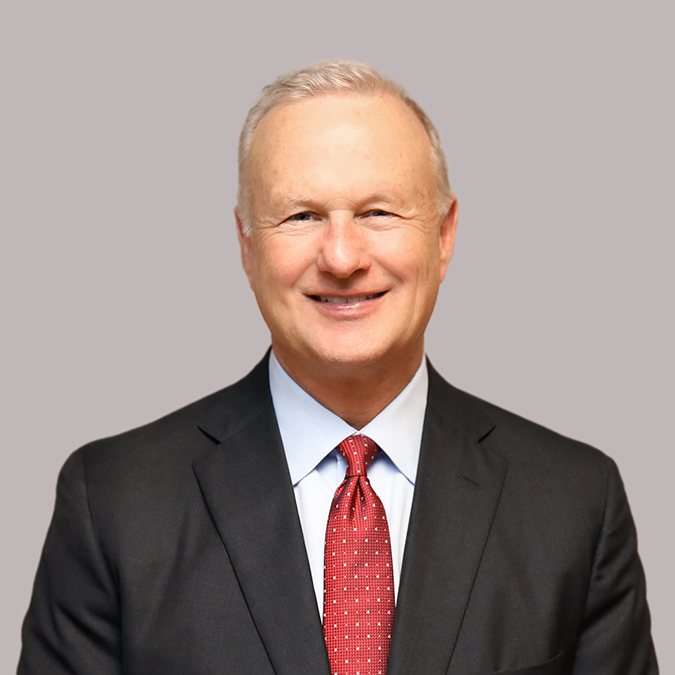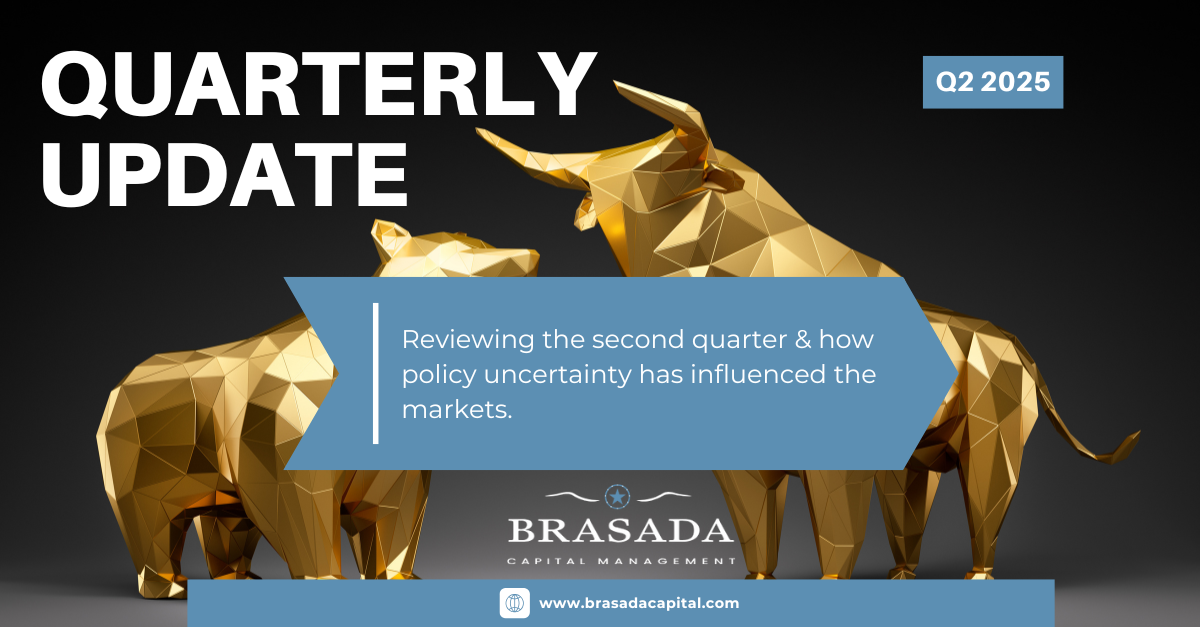Second Quarter of 2025
“Far more money has been lost by investors preparing for corrections or trying to anticipate corrections than has been lost in corrections...
6 min read
 Mark McMeans, CFA
:
Jan 8, 2021 4:57:00 PM
Mark McMeans, CFA
:
Jan 8, 2021 4:57:00 PM
.png)
As we approach each year-end, one of my traditions is to read Wall Street strategists’ predictions on what to expect in the coming year. Even more interesting is to go back one year and read predictions for the year that had just occurred. It’s a reminder of how the consensus is so frequently wrong. Barron’s cover article from last week on the subject of 2021’s outlook starts out: “Stocks could gain about 10% next year, our experts say…”. I seem to remember that in many years, strategists’ aggregate projected gain for the next year is about equal to the long-term rate of return on stocks. That is a noncontroversial prediction to be made in the public domain, but the odds of that actually occurring are very low. For many years, the long-term rate of return on U.S. stocks has been in the 8% to 9% range per year. With stronger than usual returns in the last several years, the long-term average has now moved up to 10%, but to illustrate the point, let’s use high single digits. In almost the last 100 years, the market has returned a single digit positive return (i.e. any calendar year return in the entire range of 1% to 9%) in only one out of every seven years. When investing in stocks, the ride is far bumpier than the average.
This is a good illustration of why we are such big believers in focusing our investing energies on company-level research, sticking to what we know, and in tuning out the macro noise. We work to find great stocks or bonds that fit your investment objective, as we expect to hold those over time while our investing thesis on each unfolds.
If there was ever a year to realize how difficult it is to invest based on predictions about the future, it was 2020. Few could have anticipated the government would impose a hard stop to some of the country’s most productive capacity in response to a public health crisis. Looking back on my own notes and correspondence during the worst of the crisis was personally instructive. The best thing we could have done for our investors is what we did do, which was to remain calm and look for opportunities in the dislocation. We also realized that a big part of the tragedy was in the public panic. What I underappreciated when the crisis began to unfold was in the magnitude of casualties, as this became the worst pandemic in a century. In hindsight, it wasn’t so easy to remain calm as the S&P 500 Index fell 35% in the four and a half weeks ended March 23rd.
The weakest economic numbers I expect to see in my lifetime were met with an unbelievable
government response, the magnitude of which was easy to underestimate at the time. Congress seems to hardly agree on much, but they stepped forward with a massive fiscal response in the form of the Payroll Protection Program, the CARES Act and more. The Federal Reserve’s response was also of the shock-and-awe variety as interest rates were brought down and a historic degree of liquidity was pumped into the economy.
The investors in our firm gravitate toward growth companies and this style was very much in favor in 2020. With the economy shrinking, growth becomes more scarce, and this coupled with the large increase in the money supply, provided an unusual backdrop. In a period of stress, more mature companies with stable and growing dividends underperformed those that had better revenue growth. As a result, our more aggressive strategies did exceptionally well in 2020, especially relative to the painful economic setting. Our estimated composite returns for the year, net of fees, are as follows:
Brasada US Equity: +30.0%
Friedberg Focused Equity: +24.9%
Friedberg Dividend Growth: +7.4%
Brasada Preferred’s: +6.5%
Friedberg Equity Income: +1.0%
As you know, the portfolios we build for you are customized, so your experience will typically be different than the composite averages. Bond portfolios also gained on the year as interest rates fell once again.
We believe the economy is going to be exceptionally strong in 2021, with growth far beyond the average of the last twenty years. With vaccines now being deployed, pent up activity is set to be unleashed. The savings rate increased substantially during the year, and we expect much greater spending as people enthusiastically return to restaurants, ballgames, Broadway shows and Las Vegas. They will travel, will buy new clothes and even return to cruise ships. This pent-up demand will return with the backdrop of cheap gas prices at the pump, low interest rates, continued increases in the money supply, and with the election drama in the rearview mirror.
Increased Savings Will Help Fuel Enormous Pent-Up Demand
An important point on the setting in Washington is that the electorate has now chosen the
Democrats to lead the Presidency and each house of Congress, albeit it with the narrowest
majority in an exceptionally long time. We wondered if it would be difficult for President Trump to win a second term as the US has not reelected an incumbent in a recessionary period since 1924. The Democratic majority in the House of Representatives unexpectedly narrowed by 12 seats to favor the Democrats by 4. This is their most narrow margin of leadership in 80 years. Now that the Georgia Senate seats have been decided, we know the Senate will be divided 50-50 between the two parties, with Vice President Harris able to cast a vote to break ties. Democrats will be unable to always count on unified party votes, similar to what occurred with Republicans when they had a narrow majority.
The market rally that has occurred after the election is not a coincidence. With the Senate
decided, tax hikes are now more likely to be on the table, but the very large increases promised during the campaign are going to be difficult to get through. We do expect to see continued deficit spending, another round of stimulus, somewhat higher corporate taxes and a renewed focus on climate change and infrastructure. In rejecting the extremes from both sides, and with majorities so narrow, our political leadership must reach agreements with each other before substantial new legislation is enacted. Tensions with our trading partners should improve and the degree of drama from Washington should find less of its way into the daily narrative of the markets.
The large degree of support from the government during the crisis provided a bridge to life beyond the deployment of vaccines and treatments. This was very much warranted in our view, but does come with consequences that provide a tricky balancing act for the future. The US added an estimated $3.7 trillion to the nation’s debt last year, and the massive increase in the money supply could be sowing the seeds for inflation. Higher levels of inflation can put pressure on already elevated market multiples. There are some signs of froth starting to show in the market such as traders using the Robinhood platform, money raised from Special Purpose Acquisition Companies (SPACS), and extreme performance of recent initial public offerings such as Airbnb, Snowflake and DoorDash. High valuations do not cause corrections in and of themselves, but they are a headwind for future returns.
The magnitude of last year’s market recovery from the March 23rd lows have some historical
precedent to other significant moves from major economic inflection points. Forward returns from similar past instances have pointed to average stock performance as the market consolidates gains over the next twelve months. With the economy set to grow far above trend in 2021, it wouldn’t surprise us to see a substantial rotation from higher-priced growth stocks to more economically sensitive value-type companies. This would be a healthy development for the market as corporate earnings are set to dramatically improve, and if the market can consolidate gains, more reasonable valuations would ensue. Once the rebound to a more normal post-pandemic world is complete, we expect growth stocks to regain their dominance as Central Banks continue to artificially suppress interest rates, with the global debt levels so high as to cause a ball and chain effect to future economic growth.
Life will return to a setting that we are more accustomed to after the pandemic, yet other aspects of our lives will be invariably altered from this time. Some of these changes are exploitable from an investment standpoint and we are paying attention to these as we invest on your behalf.
We appreciate the confidence you have placed in us and wish you the best.
Sincerely,
Mark E. McMeans, CFA
This quarterly update is being furnished by Brasada Capital Management, LP (“Brasada”) on a confidential basis and is intended solely for the use of the person to whom it is provided. It may not be modified, reproduced or redistributed in whole or in part without the prior written consent of Brasada. This document does not constitute an offer, solicitation or recommendation to sell or an offer to buy any securities, investment products or investment advisory services or to participate in any trading strategy.
The net performance results are stated net of all management fees and expenses and are estimated and unaudited. These returns reflect the reinvestment of any dividends and interest and include returns on any uninvested cash. In addition to management fees, the managed accounts will also bear its share of expenses and fees charged by underlying investments. The fees deducted herein represent the highest fee incurred by any managed account during the relevant period. Past performance is no guarantee of future results. Certain market and economic events having a positive impact on performance may not repeat themselves. The actual performance results experienced by an investor may vary significantly from the results shown or contemplated for a number of reasons, including, without limitation, changes in economic and market conditions.
References to indices or benchmarks are for informational and general comparative purposes only. There are significant differences between such indices and the investment program of the managed accounts. The managed accounts do not necessarily invest in all or any significant portion of the securities, industries or strategies represented by such indices and performance calculation may not be entirely comparable. Indices are unmanaged and have no fees or expenses. An investment cannot be made directly in an index and such index may reinvest dividends and income. References to indices do not suggest that the managed accounts will, or is likely to achieve returns, volatility or other results similar to such indices. Accordingly, comparing results shown to those of an index or
benchmark are subject to inherent limitations and may be of limited use.
Certain information contained herein constitutes forward looking statements and projections that are based on the current beliefs and assumptions of Brasada and on information currently available that Brasada believes to be reasonable. However, such statements necessarily involve risks, uncertainties and assumptions, and prospective investors may not put undue reliance on any of these statements. Due to various risks and uncertainties, actual events or results or the actual performance of any entity or transaction may differ materially from those reflected or contemplated in such forward-looking statements. The information contained herein is believed to be reliable but no representation, warranty or undertaking, expressed or implied, is given to the accuracy or completeness of such information by Brasada.

“Far more money has been lost by investors preparing for corrections or trying to anticipate corrections than has been lost in corrections...
.png)
UNDERSTANDING TARIFFS: ECONOMIC IMPACT, RATIONALE AND CONTROVERSIES
%20(3).png)
Market Selloff Dear Clients and Friends, Thursday and Friday marked the 4th time in the last 50 years when the S&P 500 had a 2-day drop of over...